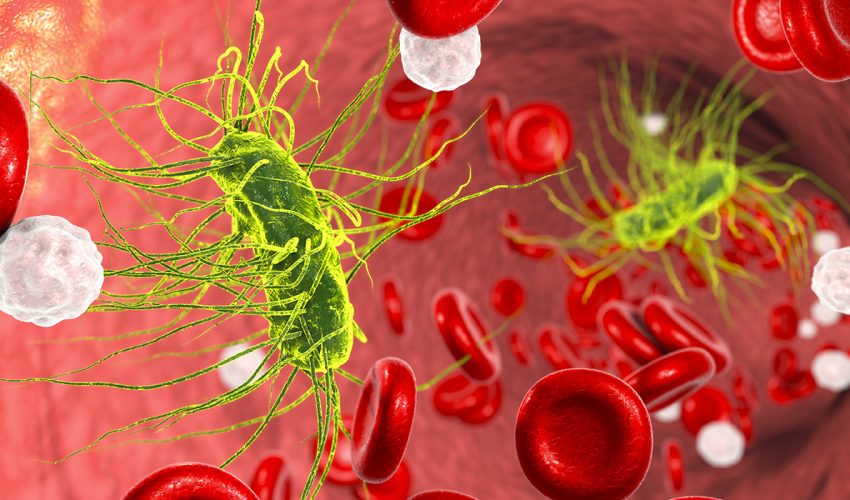Post Views: 2,737
ViewsThings Nurses Deal with that Makes Other Squirm
As you probably may have noticed—and experienced—nurses have to deal with a lot of things in the workplace; things that would totally gross out a regular person. Luckily, they usually become desensitized to most of these things after a few months on the job, so they can still give their 100%, even when knee-deep in bodily fluids or other yucky substances.
When it comes to these awkward situations, it’s difficult to become completely desensitized, as there are some things that are simply impossible to witness without, at the very least, wincing or hesitating.
“We are the eyes of the physician and the ears of the respiratory therapist. We are in a position of privilege to be with the patients on a minute-to-minute basis. People trust us, and people open up to us,” said Barb Gallogly, senior lecturer and coordinator for Post Baccalaureate Nursing Program at Henry Predolin School of Nursing at Edgewood College, Madison, Wisconsin.
In an interview for nurse.org, Gallogly shared the things that, in her experience, are the most difficult to deal with when it comes to providing care.
Body Fluids
Speaking about being elbow-deep in them, Gallogly began her list with the substances that are produced by the body and that should, at all times, remain inside the body. These substances include, above all things, blood and vomit. For the former, some people just have a special trigger for blood; they can’t see it without becoming faint or queasy. However, for the latter, it’s more a matter of personal disgust; vomit is unpleasant to the sight and smell and, the act of vomiting and retching are things we don’t like to hear.
“You have to rise above it, and work with it, and not to let your own personal feelings or reactions get in the way of good patient care,” Gallogly says. “A nurse must remain respectful of the patient and be calm when all hell breaks loose.”
The Smells
Not just limited to the smell of vomit, there are some events that involve very strong smells and odors emanating from patients, the worst of all being when a person is bleeding from their intestines. The combination of coagulated blood and feces is enough to make even the strongest, most stoic nurses wince a little. Still, putting up a strong facade, even in times when you’re about to lose it, is paramount to ensure the patient’s well-being.
Death
Some things that make it difficult to be a nurse don’t even come from the patient, but from the people that accompany them. In the case of death, most people don’t really know what this event entails for the body of the deceased. While some natural deaths are relatively calm and happen in the safety of the hospital room, others can be messy and difficult to witness. When it comes to passing away, there are seldom things more challenging to deal with than with those that are left behind, which can start some panic when their loved ones begin to relieve themselves after they have passed away.
“People are incontinent. They can’t hold their bowels. Nothing in them is awake anymore,” said Kristin Gundt, chief nursing officer at Community Hospital in Grand Junction, Colorado. “It’s the people that are alive that are panicking. People are scared to be alone with the person who is dying.”
Family Concerns
Sometimes, the only thing that is preventing a patient from healing or making progress is not the treatment, but the family. Especially when they have large families accompanying them during their hospital stay, it’s sometimes important to pull them aside, thoroughly explain the situation, and elaborate on the factors that are limiting the treatment from doing its work. Labeling the family members as the “hysterical wife” or the “bratty daughter” helps no one, and trying to understand the intricacies of their family dynamics is very time-consuming. For this reason, it’s better to focus on the patient and try to include the family in the treatment.
Mistreatment from Patients
On many occasions, when patients are sick, they don’t act like they normally would. Some patients are in pain and emotional distress, and lash out at everyone that approaches, including friends, family and, of course, the nurses and medical staff.
“They lash out at us, hit us, spit on us and swear at us. There is a lot of physical and emotional abuse,” says Gundt. Sometimes, this abuse also comes from the family members that accompany the patients and, while nurses try their best to avoid situations of escalating conflict, they sometimes need to escort problematic people out.
However, on most occasions, nurses strive to keep everyone on their good side. This is because family members are frequently great supporters of the patient, and usually provide more benefits than harm.
Still, all of these hazards come with the territory of being a nurse, and everyone knows it. However, those that choose to take this career path do so because they want to help others, despite the circumstances. For this reason, they trudge through vomit, blood, and other bodily fluids, and do so gladly if it means saving a life.
One comment on “Things Nurses Deal with that Makes Other Squirm”
Leave a Reply
Things Nurses Deal with that Makes Other Squirm
By nurseadvisorofficial
As you probably may have noticed—and experienced—nurses have to deal with a lot of things in the workplace; things that would totally gross out a regular person. Learn about these things now!














HOW I FINALLY RECOVERED MY LOST BITCOIN:
Do you need help on how to recover lost or stolen Bitcoin from fake investment scammers? I lost all my Bitcoin to a fake investment scam to someone I met online. After losing my Bitcoin investments, I was determined to find a solution. I started searching for help legally to recover my funds, and I came across a lot of Testimonies about GEO COORDINATES HACKER. I am incredibly grateful for the exceptional service, and wanted to inform you all about this positive outcome. They emphasized their excellent strategy for Bitcoin recovery. In order to assist people and companies in recovering their lost or stolen cryptocurrencies. They guarantee that misplaced bitcoins have an opportunity to be recovered with their excellent services. If you or anyone you know ever finds yourselves in a similar unfortunate situation, I highly recommend reaching out to GEO COORDINATES HACKER. Contact Info Email:
( geovcoordinateshacker@proton.me )
Email; ( geovcoordinateshacker@gmail.com )Telegram ( @Geocoordinateshacker )Website; https://geovcoordinateshac.wixsite.com/geo-coordinates-hack